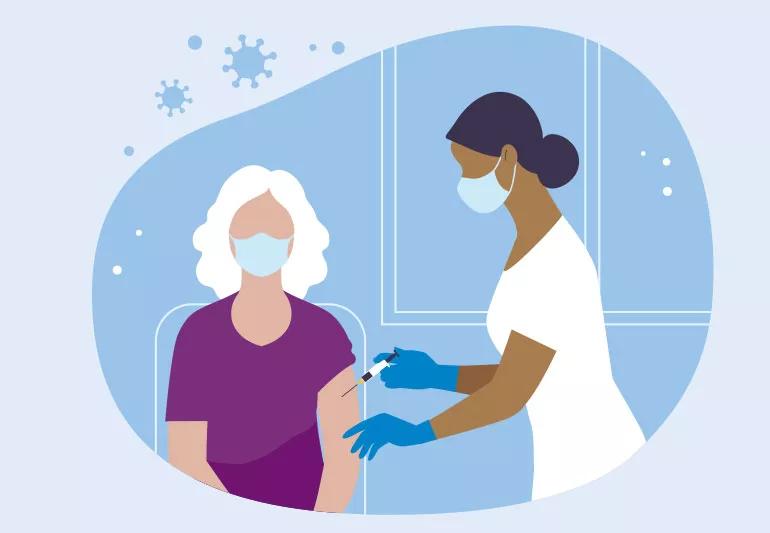While the news is promising, check with your healthcare provider first

Image content: This image is available to view online.
View image online (https://assets.clevelandclinic.org/transform/61343659-f2f7-40f6-b122-20caa0f0c2d5/boosterShotCompromised-1299951716-770x533-2_jpg)
immunocompromised getting booster shot
A: On August 12, 2021, the FDA updated its emergency use authorization for both Pfizer-BioNTech’s and Moderna’s COVID-19 vaccines for immunocompromised individuals, specifically, solid organ transplant recipients (kidney, liver, intestines, heart, lung and pancreas) or those who are diagnosed with conditions considered to be at the same level of immunocompromise.
Advertisement
Cleveland Clinic is a non-profit academic medical center. Advertising on our site helps support our mission. We do not endorse non-Cleveland Clinic products or services. Policy
Transplant recipients have to be very careful because their immune systems are suppressed to reduce the chances of their bodies rejecting the new organs they receive. Overall, immunocompromised people are at increased risk for poor outcomes from COVID-19, and studies have shown a reduced antibody response for this patient population after vaccination.
On October 20, 2021, the FDA amended the EUA to include booster shots of all three vaccines (Pfizer, Moderna and Johnson & Johnson). For Pfizer and Moderna, the parameters are patients:
Additionally, the Johnson & Johnson vaccine booster was cleared for all recipients age 18 and up who received the single dose that one-shot vaccine. The FDA is also allowing a “mix and match” system for boosters. In other words, once you’ve completed your original vaccine dose, you can receive any of the available vaccines as a booster.
In July, the Centers for Disease Control and Prevention’s (CDC) Advisory Committee on Immunization Practices (ACIP) presented “Data and Clinical Considerations For Additional Doses In Immunocompromised People” during a meeting. One finding in this presentation was that recent studies have indicated that additional COVID-19 vaccine doses in immunocompromised people enhanced antibody responses and increased the proportion that responded. In smaller studies, the immunological responses of the third dose were about the same as prior doses.
Advertisement
Currently, the CDC recommends that moderately to severely immunocompromised people receive an additional dose. This includes people who have:
If you qualify, you can get the third dose of a COVID vaccine as soon as possible. However, talk to your healthcare provider first to determine if you should.
— Hematologist Matt Kalaycio, MD
Advertisement

Sign up for our Health Essentials emails for expert guidance on nutrition, fitness, sleep, skin care and more.
Learn more about our editorial process.
Advertisement
Most recommended precautions center around minimizing bruising or swelling
Even one drink can have an impact on your cognitive function leading to slurred speech, blurred vision and impaired memory
Understand who may (and may not) benefit
Lorem ipsum dolor sit amet. Et odio Quis vel ipsam omnis eum alias deleniti et placeat impedit non voluptas galisum hic autem enim et cupiditate aliquid. Est beatae quidem non facilis autem ut commodi nisi aut tempore rerum et dolores voluptatem cum enim optio id sapiente quasi. Ad laboriosam officiis 33 cupiditate sequi ea voluptatum consectetur qui necessitatibus voluptate et quasi doloremque et facere explicabo quo explicabo officia
Seeking help through therapy can be an important step in improving your quality of life when you have UC
Type 2 diabetes isn’t inevitable with these dietary changes
Applying a hot or cold compress can help with pain
Pump up your iron intake with foods like tuna, tofu and turkey